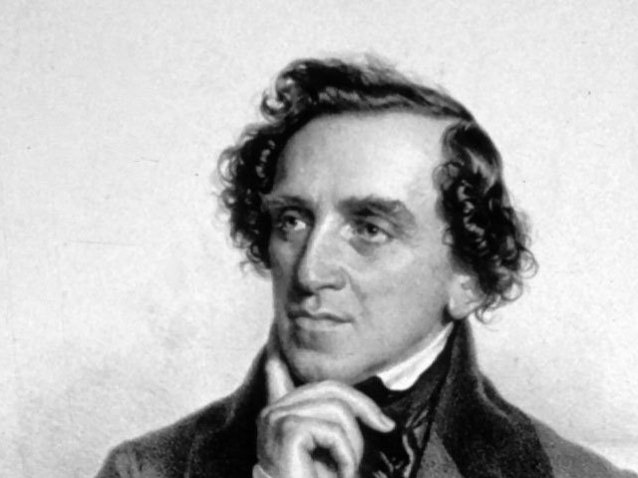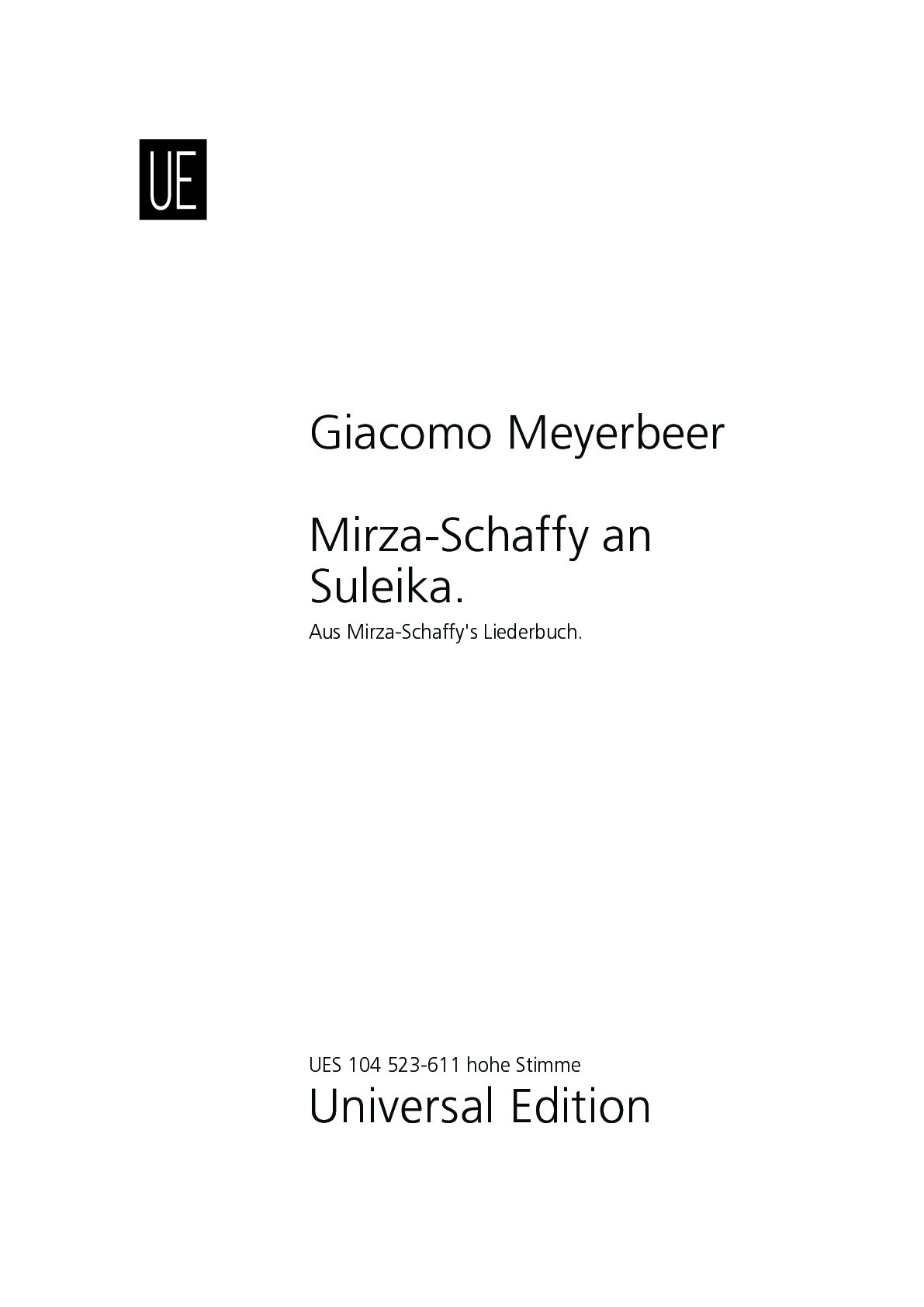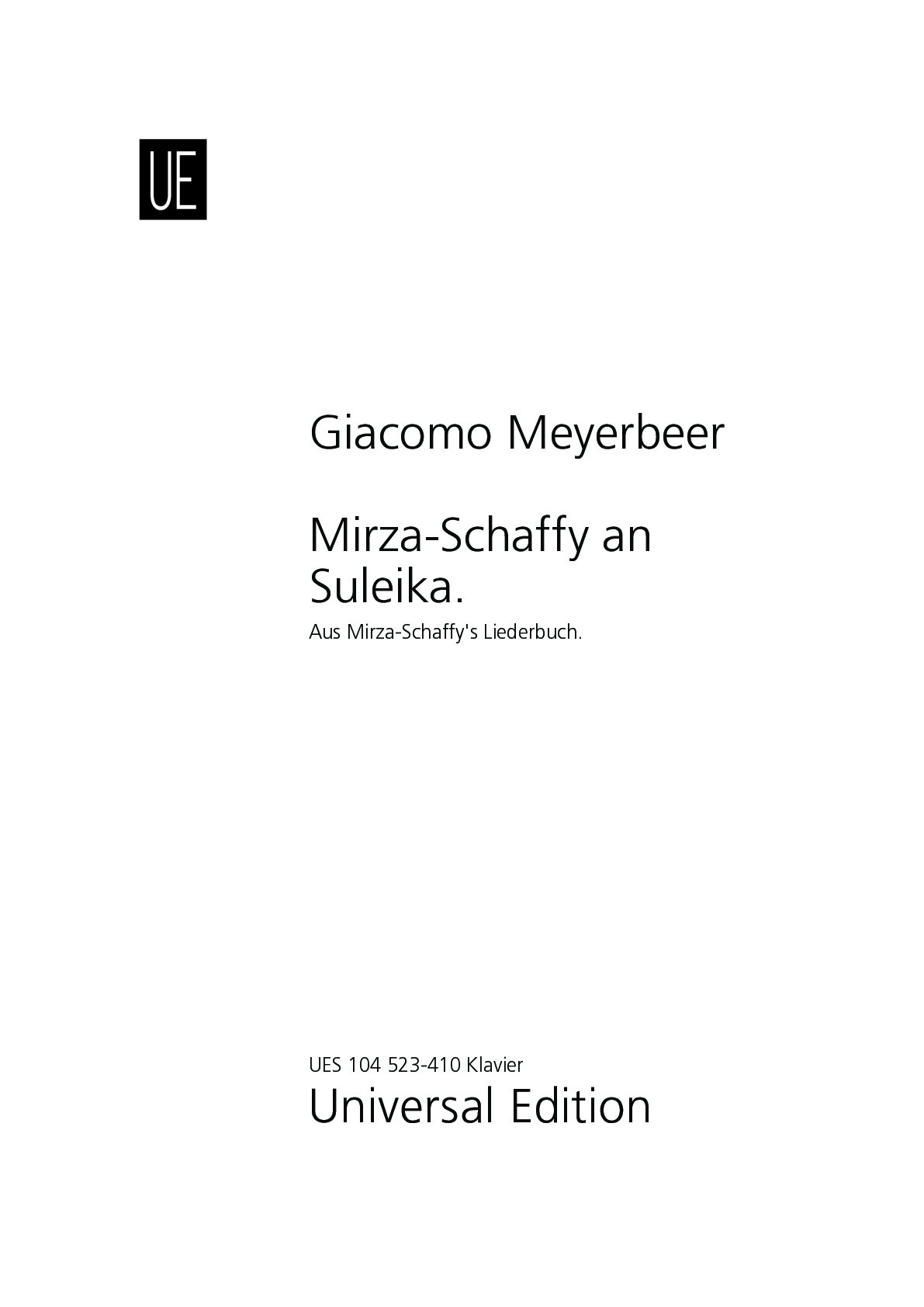

Giacomo Meyerbeer
Mirza-Schaffy an Suleika.
Duration: 3'
Solos:
piano
high voice
Mirza-Schaffy an Suleika.
Translation, reprints and more

Giacomo Meyerbeer
Hohe Stimme (Mirza-Schaffy an Suleika.)Type: Solostimme(n)

Sample pages
Work introduction
High voice and piano
In 1851 the German writer and Theatre Director Friedrich von Bodenstedt (1819-1892) published „Die Lieder des Mirza-Schaffy“. The poetry anthology is a literary memorial to the Tartar Poet and scholar Mirza Schaffy-Wazeh. Bodenstedt had come to know Mirza Schaffy in Tiflis (Georgia) during his extensive travels and stays in Russia and the Caucasus region and for a while had even considered him to be his teacher. The poetry collection idealises the Wisdom of the Orient using the person named as a model and to some extent stands in the same tradition as Goethe's 'West-East Divan'. Bodenstedt's „Lieder“ were exceptionally successful, they gained enormous popularity in Germany and elsewhere. Excerpts were then set to music by various composers of the 19th century, such as Anton Rubinstein, Heinrich Marschner, Louis Spohr, Franz Liszt or Franz Abt.
Meyerbeer set the twelfth Poem of the Zuleikha in 1860 - „Die helle Sonne leuchtet“. ''The bright sun shines''. The text he used was is own copy of the poem, which leads to some slight variations from the original. In Meyerbeer's diary he notes how it was writing this song after a three month 'pause' in his creativity that brought him back once again into a 'musical mood'. The work was written during the 11th and 12th April that year. On the following day he sent the complete score to Dresden for publication. The piece was intended as a contribution to the "Weber-Album“ of the Allgemeinen deutschen National-Lotterie, from the profits of which a memorial for Carl Maria von Weber was to be built in Dresden at the end of the year. (Meyerbeer had enjoyed a close friendship with Weber).
The song had been considered as lost. Its rediscovery is the work of the President of the International Giacomo-Meyerbeer-Gesellschaft e.V., in Berlin, Thomas Kliche.
